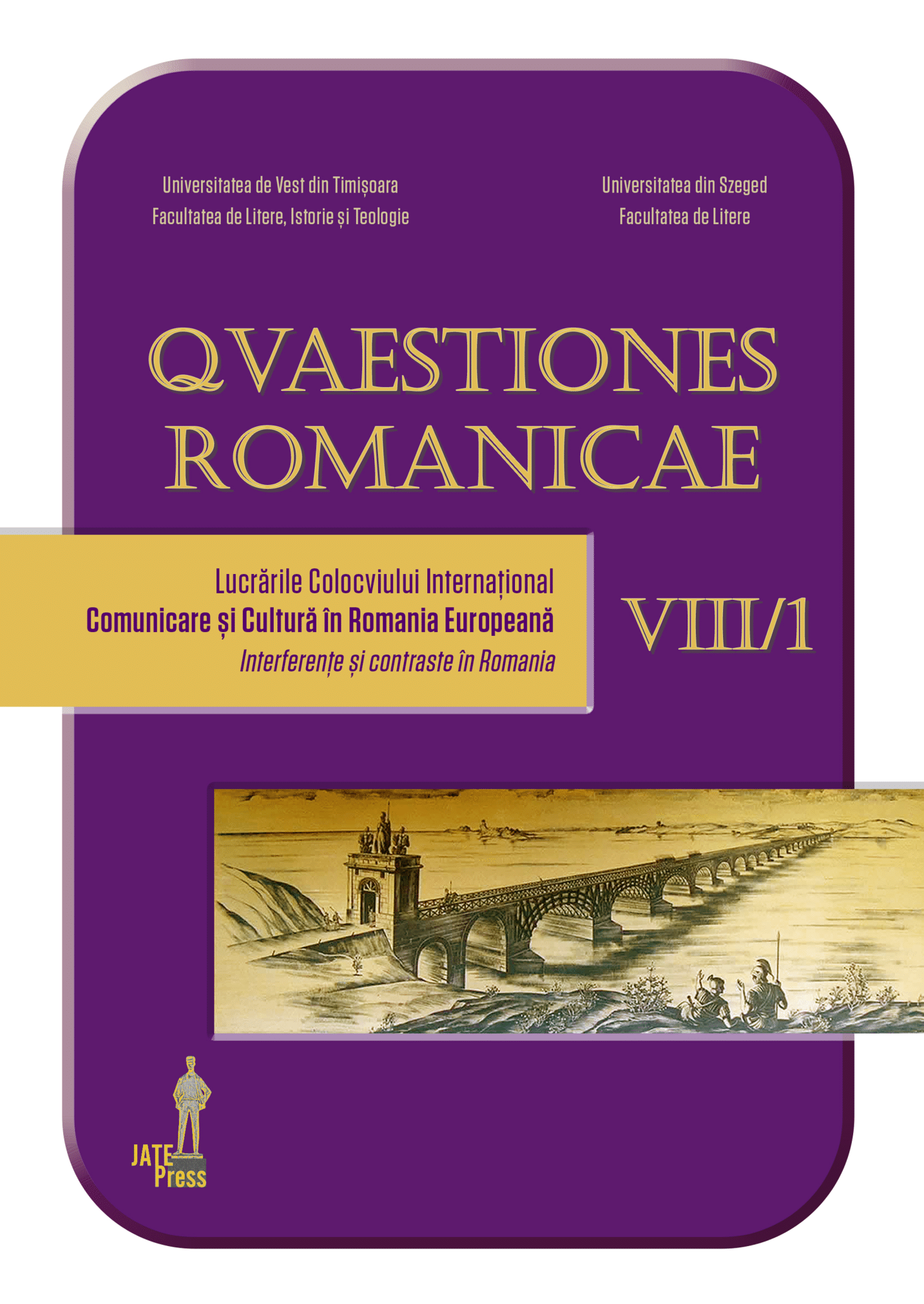Visul celtic și visul românesc: thanatofilia eroică
The Celtic Dream and The Romanian Dream: the Heroic Thanatophilia
Author(s): Mirela-Ioana Borchin-DorcescuSubject(s): Stylistics
Published by: Universitatea de Vest din Timişoara
Keywords: arch-remembrance;interference;avatar;Knight;heroic thanatophilia;
Summary/Abstract: This paper aims to show some obvious, but subtle correspondences and interferences between the everlasting dreams of chivalry, which have crossed the European cultures. This type of dream, involving strength, love, faith, devotion and readiness to die for a noble cause, proves to be essential for Eugen Dorcescu’s poiesis. Both his poetry and prose are based upon the Celtic dream that provides prolific perspectives as a pattern of distinguished manhood. In broad lines, this is the matrix of Eugen Dorcescu’s work. All dreams of elation developed in poems or in fairy-tales lead back in time, reinforcing the Celtic dream. For instance, the strong and painful feeling of exile experienced by the writer in his own homeland makes him dig deep in the layers of oblivion in order to find where his roots are. Arch-remembrance helps him go beyond the usual limits. Darkness, mist, labyrinth, depths etc. bring to light his own ancestral avatar: the Knight. ”Heading westwards”, he reaches the Celtic symbols of love, power and sacrifice in the person of Lancelot. The novel about The Knights of the Round Table supports the resurrection of the Celtic dream and the parallel development of the Romanian dream of chivalry, which equally mean nobility and ultimate sacrifice in the name of love. The Knight’s life is worth to be given either for his Lady (see The Arch-remembrance) or for his Lord/for God Himself (see The Saint John’s Knight). In Eugen Dorcescu’s fantastic prose, some Romanian knights, among whom Barbă-Cot is the writer’s alter-ego, are simply Lancelot’s partners. They are always ready to die for him, since they are united in the same dream, although separated in history. The utmost devotion takes the form of the heroic thanatophilia. The calling of nobility, in life and death, is a sign of dignity and value.
Journal: Quaestiones Romanicae
- Issue Year: VIII/2020
- Issue No: 1
- Page Range: 236-246
- Page Count: 11
- Language: Romanian

